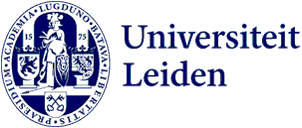Practical steps upon awarding
Congratulations on your awarded grant. Here is a checklist of what to do next and who you will need to involve to get your project started.
Step 1. Inform your Institute right away
Inform your local grant advisor or Institute Manager of your success. They’re ready to:
- Take out of hand some of the tasks below and guide you towards other support departments to involve.
- They can also help you interpret any complex e-mails of the EU, (in case it is not clear whether or not you have been successful).
Step 2. Things to do to make the grant official
Your local grant support will help youto accept the award. For a number of grants this also means that a grant agreement needs to be put in place, which is a legal document. The funder can have other conditions, for which you need to show that you comply. What you need to do is usually described in the award letter or appendices, and otherwise you have to consult the regulations of the funder.
Please check immediately the items below that may be applicable to you, and involve the appropriate support:
The EC communicates with the awardees via the Funding & Tender Opportunities Portal. You will receive e-mail notifications telling you to go to the Participant Portal to read requests. This means you need to login to the Funding & Tender Opportunities Portal. The whole process, including signing documents, is electronic. Always add your grant advisor and financial controller to the project as contact person. For a summary of the process see also the Funding & tender opportunities Online Manual.
Some funders, including the European Commission, will ask that you turn your proposal into a Description of Work (DoW)/Technical Annex. Although essentially the same as your proposal there are a number of additional elements which turn your original document into a legal document which the funder will use to evaluate the progress of your project. Make sure you keep a Word version of the DoW. You will need this if you want to make changes during the execution of the project.
An ethics review has to be completed for H2020 and ERC projects. More information can be found here: Ethics review EU.
Each funder that requires an agreement to be put in place has a template or model agreement that you can adapt. The university also has its own guidelines for agreements, which can be found in working with third parties and key principles for collaboration with third parties. Standard university agreements are used as much as possible. Follow the procedure for signing research-related contracts and grant documents. The flowchart on this page helps you to find which financial and legal checks and approval you need, and how to get the documents signed by the appropriate legal representative.
The stakes for consortium partners to participate in a project can be very high, especially when new Intellectual Property can be generated, but also when it comes to publishing of results. A consortium agreement is therefore necessary to describe the arrangements made between the partners. Follow the procedure for signing research-related contracts and grant documents. The flowchart on this page helps you to find which financial and legal checks and approval you need, and how to get the documents signed by the appropriate legal representative.
Legal agreement support at Luris
Further information:
Step 3. Things to arrange at the start of the project
- Setting up financial administration -> go to your Institute Manager and Financial department of your Faculty
- Hiring personnel -> go to your Institute Manager and HR department of your Faculty.
- Buying equipment -> go to your Institute Manager. If equipment needs to be publicly procured you also need to go to take note of the Procurement procedures.
- Arranging workspace for new personnel -> go to you Institute Manager
- Setting up project management
- Writing a data management plan
- Start communicating about the project
